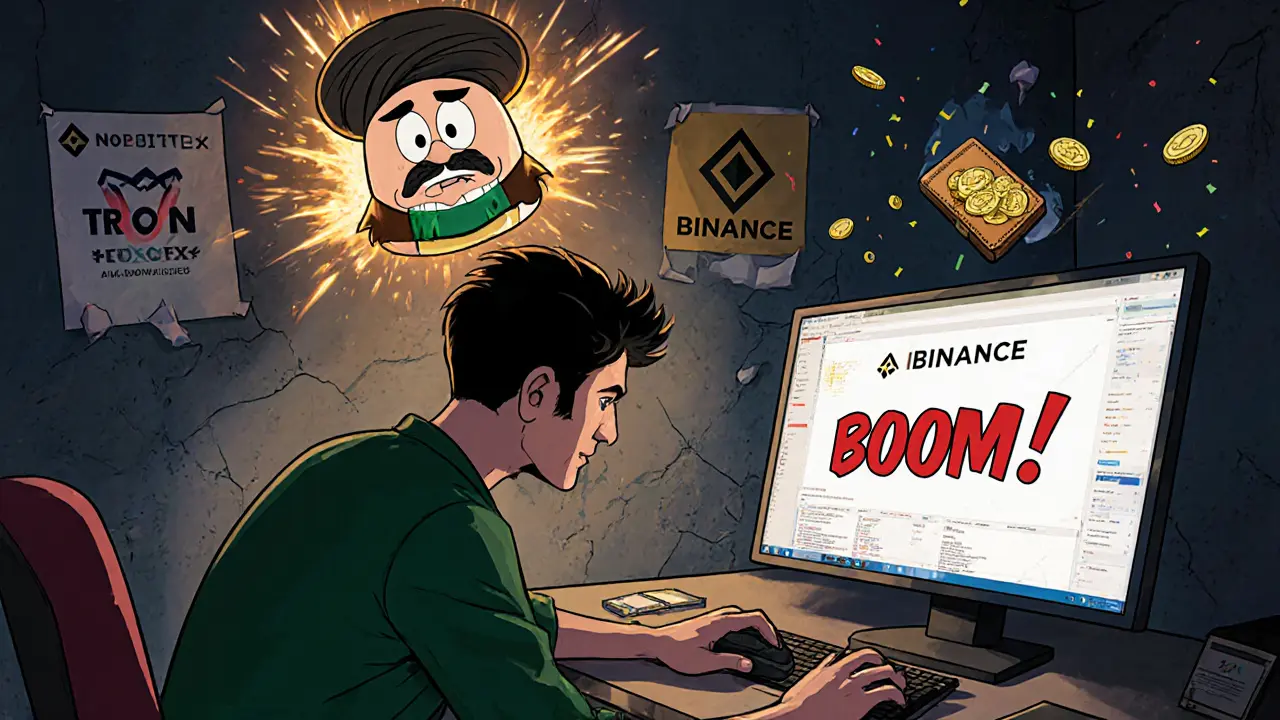VPN Crypto Iran: Bypass Restrictions and Stay Safe Online
When you're in Iran and trying to use crypto, digital assets like Bitcoin or Ethereum that operate outside traditional banking systems. Also known as blockchain currency, it enables peer-to-peer value transfer without state control. you're not just fighting technical hurdles—you're navigating one of the world’s most restrictive internet environments. The Iranian government blocks major crypto exchanges, monitors online activity, and restricts access to foreign financial platforms. That’s where a reliable VPN, a virtual private network that encrypts your connection and hides your location. Also known as secure tunnel, it creates a private pathway through the public internet. becomes essential. Without it, you can’t access Coinbase, Kraken, or even decentralized exchanges like Uniswap. A good VPN doesn’t just unblock sites—it shields your identity, prevents tracking, and keeps your transactions private from local ISPs and surveillance systems.
But not all VPNs work the same in Iran. Many free services get blocked quickly, and some even log your activity—something you absolutely cannot risk when dealing with crypto. You need a paid, no-log VPN with obfuscation tech, like WireGuard or Shadowsocks, that can disguise your traffic as regular HTTPS. These tools are the difference between being able to buy Bitcoin and having your account frozen or worse. And it’s not just about access—it’s about safety. Crypto scams, phishing sites, and fake airdrops are everywhere, especially in regions with limited financial literacy. A secure connection helps you avoid malicious actors trying to steal your keys or trick you into revealing seed phrases. In Iran, where traditional banking is unreliable and foreign currency is hard to get, crypto is a lifeline. But without a trustworthy VPN, that lifeline is cut off before you even reach for it.
What you’ll find below are real, tested reviews of crypto platforms and tools that Iranians actually use—not theoretical guides or marketing fluff. From exchanges that still work under sanctions to airdrops that aren’t scams, every post here is based on current data from 2025. You’ll learn how to verify if a crypto project is real or fake, how to pick a VPN that won’t disappear tomorrow, and how to protect your assets when the network goes dark. This isn’t about theory. It’s about survival in a digital economy that’s being actively suppressed.

VPN Usage for Crypto in Iran: Detection Risks for Traders
Iranian crypto traders rely on VPNs to bypass sanctions, but detection has become far more sophisticated in 2025. Learn how exchanges track users, why free VPNs are dangerous, and what’s really happening behind the scenes.